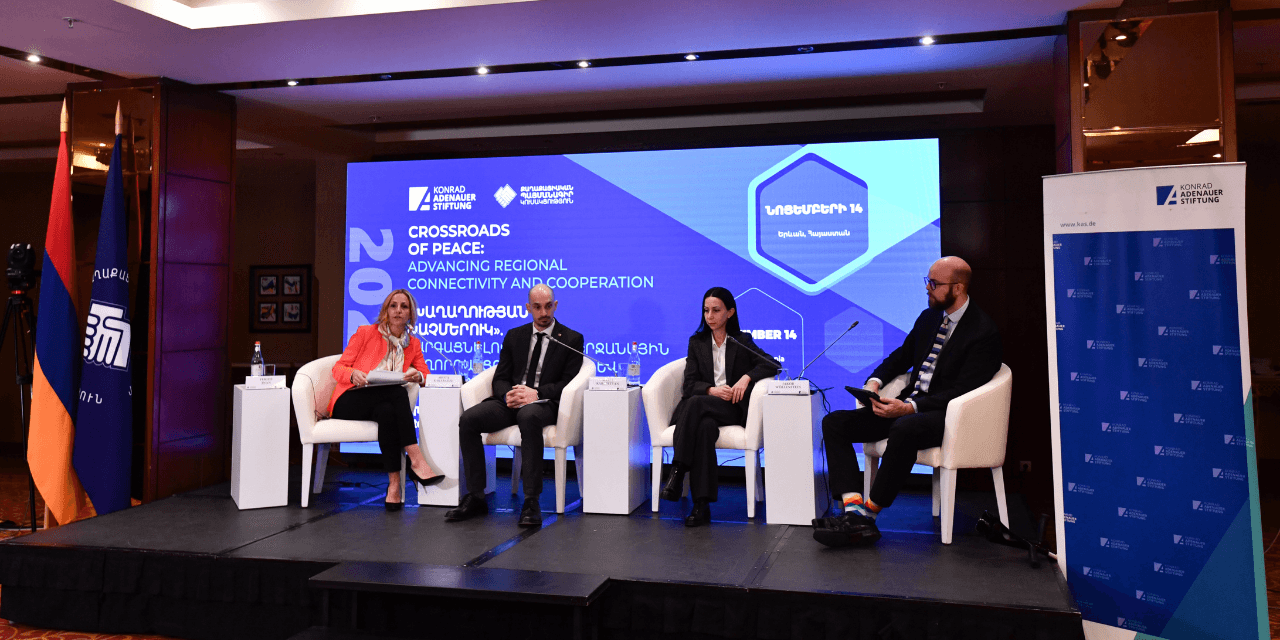
TEPAV shared Türkiye’s vision for regional connectivity and economic cooperation at the international conference titled “Crossroads of Peace: Advancing Regional Connectivity and Cooperation.”
TEPAV participated in the international conference “Crossroads of Peace: Advancing Regional Connectivity and Cooperation.” Held on 14 November 2025 in Yerevan and organized by the Konrad-Adenauer-Stiftung (KAS) in partnership with the Civil Contract Party, the event brought together experts, policymakers, and practitioners from across the region.
Armenian Prime Minister Nikol Pashinyan, in his opening remarks, discussed the progress of the government’s proposed “Crossroads of Peace” initiative. He highlighted, in particular, the Trump Route for International Peace and Prosperity (TRIPP) project planned for southern Armenia.
“Connectivity is the Key to Regional Integration”
Speaking at the opening panel, Feride İnan, Director of TEPAV’s Center for Geo-Economic Studies, emphasized that connectivity projects play a critical role in regional integration, economic diversification, and stability.
İnan noted that Türkiye considers regional stability a core priority for securing trade and investment, adding that the accelerating green transition will further increase the need for economic diversification across the region.
“Türkiye’s Industrial Capacity Serves as a Regional Bridge”
İnan highlighted Türkiye’s strong industrial base, strengthened through the Customs Union with the EU and deep integration into European value chains. This structure, she noted, equips Turkish companies to support regional economies in integrating into more advanced production chains and EU trade networks.
“Türkiye–Armenia Cooperation Brings Mutual Benefits”
İnan underlined that Türkiye’s relations with the South Caucasus are also significant for its domestic economic development. She pointed out that Türkiye’s eastern provinces bordering Armenia are among the country’s lowest-income regions.
Cross-border economic cooperation, she argued, could support regional normalization while contributing to more balanced development within Türkiye.
“Tourism Can Create Value for SMEs, Women, and Youth”
İnan identified the tourism value chain—particularly initiatives rooted in cultural heritage and ecotourism—as one of the most feasible areas for cooperation between the two countries. She emphasized that this sector could generate direct economic opportunities for SMEs, women, and young people, and that locally driven economic interaction could make the normalization process more inclusive, tangible, and sustainable.




